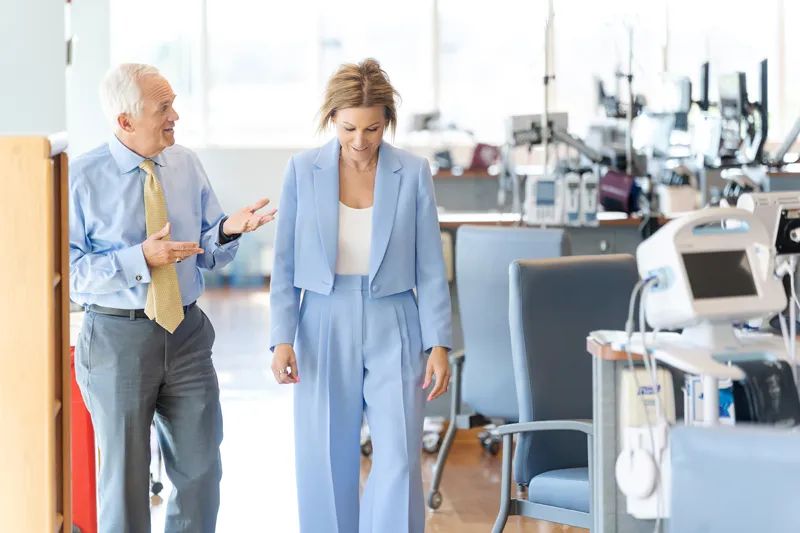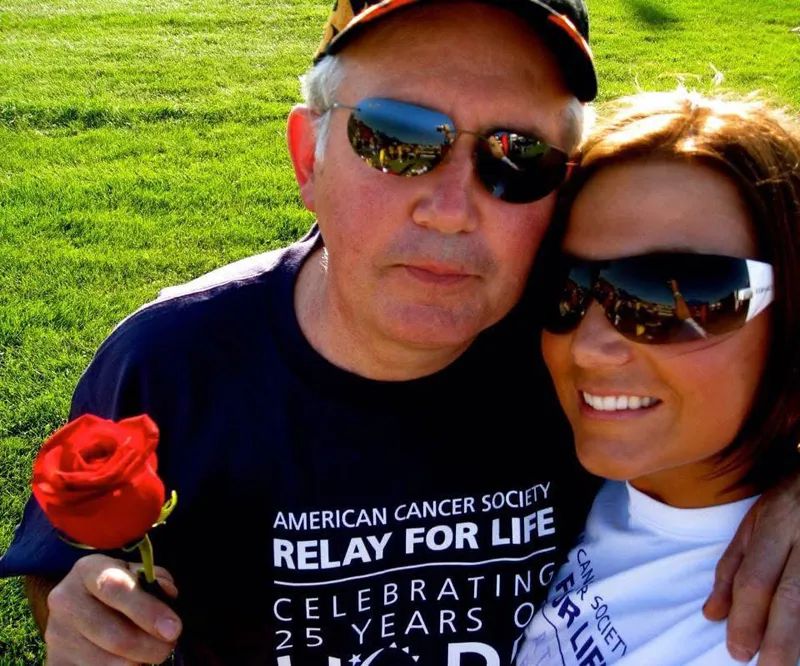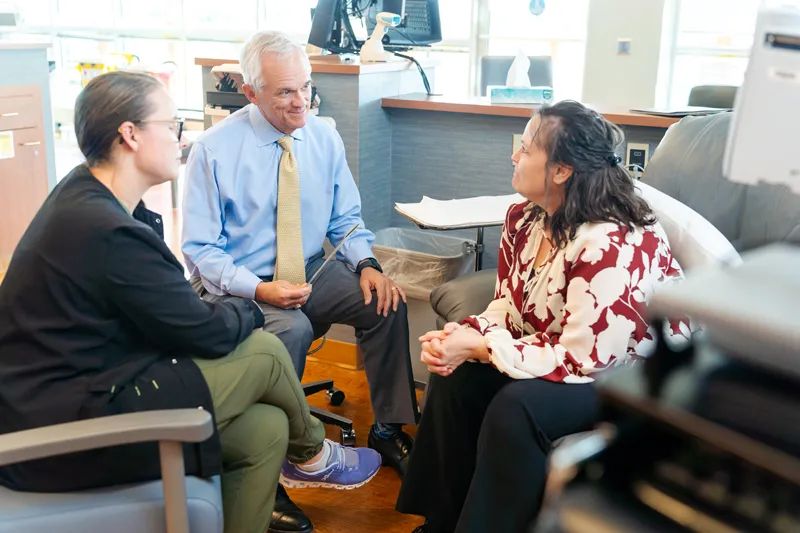
When Hope Comes Home
Clinical Trials help bring medical breakthroughs to Billings
When Julie Petty was diagnosed with breast cancer she laughed.
“I said to the doctor, ‘Are you sure you have the right person?’” Julie says.
As the hard reality set in, she learned more about her diagnosis and the treatment she would need. The metastatic cancer had spread from her breast into her lymph nodes under her arm. The cancer was estrogen receptor-positive. Her oncologist explained that the cancer cells in her body included proteins that bind to the hormone estrogen, which signaled the cancer cells to grow.
Julie and her 17-year-old daughter had just moved to Billings, and their lives were suddenly upended with a blur of medical appointments. She maintained her work schedule the best she could, and her coworkers stepped in to help with rides and meals.
Several biopsies and two surgeries were followed by a brief round of chemotherapy, which didn’t go well for her. After following with a radiation treatment, Julie’s oncologist suggested a clinical trial for female patients who have estrogen receptor-positive cancer.
By participating in a trial, she could receive the latest innovations in cancer therapies. The research being done was aimed at measuring the effectiveness of new drugs and treatments before they become widely available. While most patients with cancer have to travel hundreds of miles to take part in clinical trials, Julie was surprised to find she didn’t have to leave Billings to participate.
After extensive testing to be sure she was a good fit for the study, Julie was enrolled in a trial at the Intermountain Health Cancer Centers of Montana, located on Billings’ West End.

The cancer research center opened its doors 10 years ago and since then has headed up more than 200 trials with more than 800 enrolled patients. Most of those patients have been from Billings and the surrounding area. While most research centers are affiliated with major medical centers with an academic presence in large metropolitan areas, the Intermountain Health research center in Billings has gained a well-respected reputation in the field of medical research despite its more rural location.
“Our innovative new trials are on par with any other big university research program,” says Tina Erhardt, the regional director of research for the Peaks Region of Colorado and Montana and the intermountain director of research for Oncology Research.
Right now, the center is running about 50 different trials, including the one Julie is participating in, and 14 more trials are pending.

Julie was motivated not only by her own recovery but also what the research could offer other women battling the same type of cancer. In the three years that she’s participated in the study, the treatment is working and she’s regaining her health. As a part of the trial, she still meets with her caregivers every three months for in-depth monitoring. Each day, as she takes the medicine, she fills out a log answering a couple of questions. The trial will run until 2027. Julie says the close monitoring gives her peace of mind.
As the director of the research center, Tina’s connection to her work runs deep. She was drawn to the field of medical research after moving to Billings in 2008 to care for her father, who was diagnosed with colorectal cancer. He was expected to live only six months but with effective treatments and the help of clinical trials he lived for another four years. The research center where he received treatment was in Denver.
“I was able to advocate where I could for my dad and he got a lot more time with his wife, my brother and I and his step-kids,” Tina says.
Tina remembers the long drives between Billings and Denver with her father. She was grateful her father was able to participate in a trial, when so many families don’t have the time or money to take a sick loved one to a research center far from home. Tina often thinks about the families of all the patients who have participated in trials at Intermountain Health Cancer Centers of Montana.
“Sometimes it seems like 800 isn’t a big number, but for Billings, Montana, 800 patients is important,” Tina says. “The impact on people’s lives is significant.”
Clinical trials take years to perform, and many of the therapies used in completed trials at Intermountain Health research center have gone on to become standards of care in the treatment of cancer.

Tina was part of the initial startup of the research center, an idea spearheaded by Dr. Patrick Cobb, an oncologist who saw many of his patients and their families struggle with the decision to participate in clinical trials.
“Oncology patients are often very motivated to participate in trials of new drugs to treat their cancer but are hesitant to travel a long way from their homes and loved ones,” Dr. Cobb says. “That’s why we’ve worked hard to participate in high-quality therapy trials right here in Montana. Our patients are able to get access to the latest cancer treatments from people they know, in a convenient and supportive environment.”
With a focus on providing access to the best possible care for his patients, he took his idea of starting a research center to the St. Vincent Healthcare Foundation Board and asked for a $200,000 investment to launch the research center.
“He laid the foundation for what’s become a leading institution in our region,” Tina says.
The center started out with just Dr. Cobb finding sponsors and Tina enrolling patients, and now there are about 15 caregivers working in the research center.
“We have had to learn to be really efficient,” Tina says. “We are small, but we are mighty!”
During her tenure, Tina has stepped into nearly every role at the research center, and says the best part of her career has been working with the talented and dedicated individuals who have worked on the research center team.
“Research serves patients,” Tina says, “and that’s why we’re here — for our patients."
TO LEARN MORE about the current clinical trials or how to inquire about one, visit intermountainhealthcare.org/about/research. While most research trials have focused on oncology and cancer treatment, others have focused on neurosciences, diabetes, and orthopedics.









